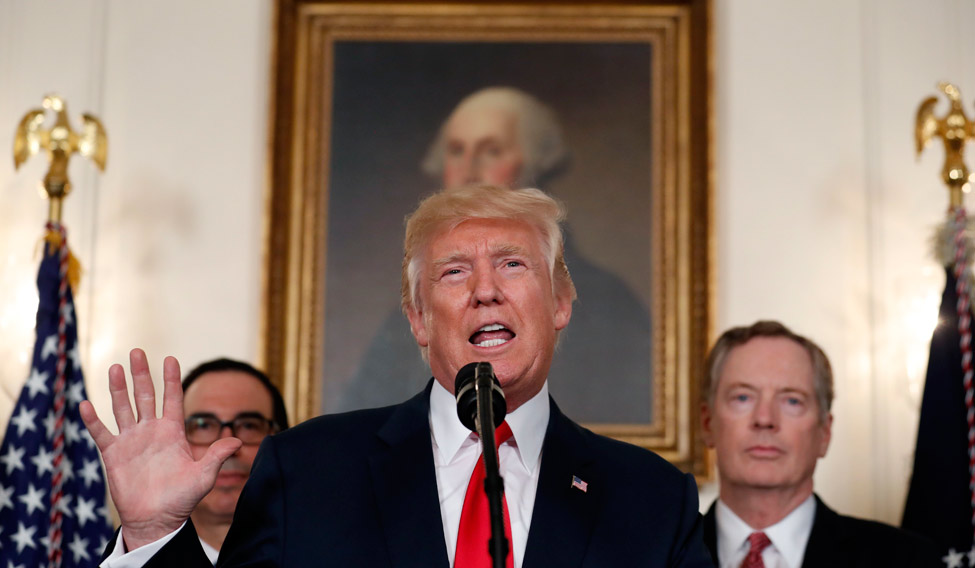US President Donald Trump directed the US Trade Representative (USTR) Robert Lighthizer to examine China's intellectual property practices, despite worries about potential harm to China-US trade ties.
"Ambassador Lighthizer, you are empowered to consider all available options at your disposal," Xinhua news agency quoted Trump as saying at the White House before signing an executive memorandum authorising Lighthizer to examine the issue.
The USTR will determine "whether to investigate any of China's laws, policies, practices or actions" that "may be harming American intellectual property rights, innovation or technology development" under Section 301 of the Trade Act of 1974, according to the memorandum.
If Lighthizer decides to go ahead with an investigation, the US would first consult with China and the investigation process could take as long as a year, senior administration officials told reporters.
"This will be one of USTR's highest priorities, and we will report back to the President as soon as possible," Lighthizer said on Monday.
While it's not clear whether or when Lighthizer would launch Section 301 investigation into alleged China's IP practices, the move has raised grave concerns about potential bigger trade conflict between the two largest economies of the world.
China's Ministry of Commerce on Tuesday expressed "grave concerns" about the memorandum.
"We hope the US trade representative respects facts and acts with prudence," a ministry statement said.
If the US side fails to respect basic facts and multilateral trade rules, and takes measures that harm bilateral economic and trade relations, "China will definitely not sit by, but take all appropriate measures to resolutely safeguard its legitimate rights and interests", it said.
China has urged the US to objectively evaluate Beijing's progress in protection of intellectual property rights (IPR) and resolve the differences with China through dialogue and consultation.
"With the increasingly interwoven interests between China and the US, a trade war will lead nowhere and neither side will win," Chinese Foreign Ministry spokesperson Hua Chunying said on Monday.
China has always attached importance to protecting IPR by formulating laws and regulations, cracking down on violations and raising public awareness of IPR, Hua said.
Section 301, once heavily used in the 1980s and the early 1990s, allows Trump to unilaterally impose tariffs or other trade restrictions against foreign countries. But the US has rarely used the trade tool since the WTO came into being in 1995.





